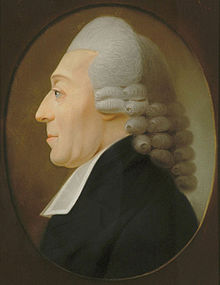
Back يوهان اوجست افرايم جويز ARZ Йохан Август Ефраим Гьоце Bulgarian Johann August Ephraim Goeze Catalan Johann August Ephraim Goeze German Johann August Ephraim Goeze Spanish Johann August Ephraim Goeze French יוהאן אוגוסט אפרים גצה HE Johann August Ephraim Goeze Italian Johann August Ephraim Goeze Dutch Johann August Ephraim Goeze NB
Johann August Ephraim Goeze | |
|---|---|
 Johann August Ephraim Goeze | |
| Born | 28 May 1731 |
| Died | 27 June 1793 (aged 62) |
| Nationality | German |
| Alma mater | University of Halle |
| Scientific career | |
| Fields | |
Johann August Ephraim Goeze (German: [joˈhan ˈʔaʊɡʊst ˈʔeːfʁa.ɪm ˈɡœtsə]; 28 May 1731 – 27 June 1793) was a German zoologist, born in Aschersleben. He is known for the discovery of tardigrades, also called water bears. He was the son of Johann Heinrich and Catherine Margarete (née Kirchhoff). He studied theology at University of Halle. He married Leopoldine Maria Keller in 1770, by whom he had four children. In 1751, he became a pastor in Aschersleben, in Quedlinburg, and later of St. Blasius' Church in Quedlinburg in 1762, finally becoming first deacon of the seminary of Quedlinburg in 1787. He died in Quedlinburg.
He did much work with aquatic invertebrates, particularly insects and worms. In 1773, he was the first to describe tardigrades. In 1784, Goeze perceived the similarities between the heads of tapeworms found in the human intestinal tract and the invaginated heads of Cysticercus cellulosae in pigs.[1]
- ^ "AFIP index". Afip.org. Archived from the original on 27 December 2010. Retrieved 20 November 2014.